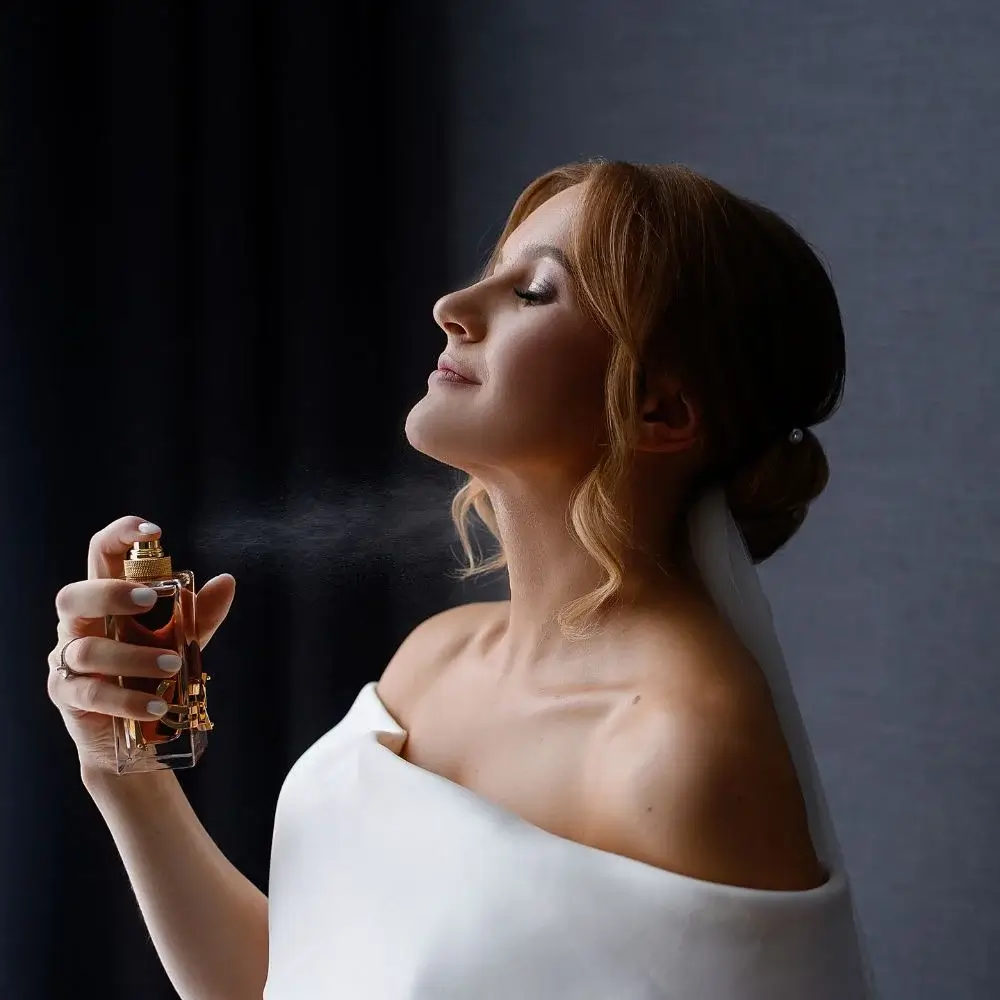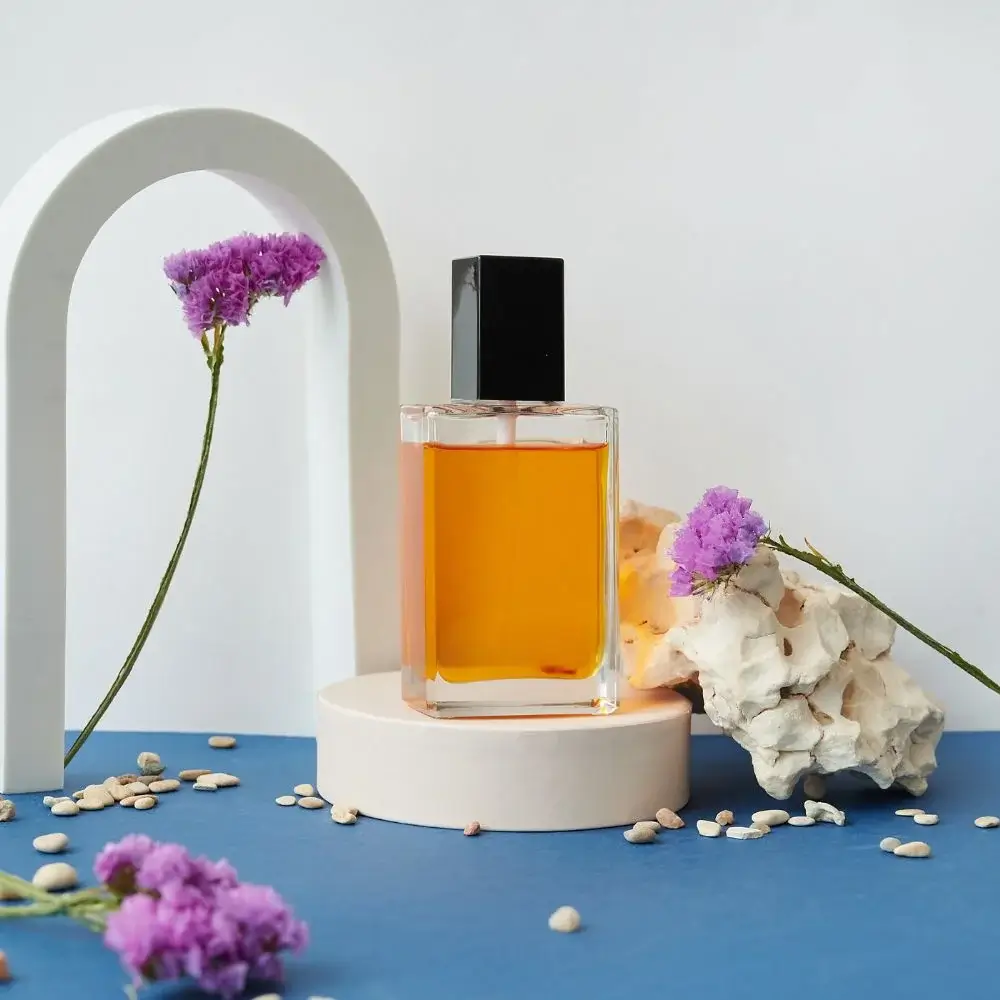Perfumes define a person's personality. From enticing fragrances to spellbinding aromas, every scent tells a story. Oud perfume remains elusive and mysterious among the diverse range of perfumes available in the market. Have you ever wondered what Oud perfume smells like? Originating from the tropical regions of Southeast Asia, Oud is derived from the Agarwood tree, which is considered one of the world's costliest natural ingredients. In this blog, we will explore the mystical scent of Oud perfume and understand its enigmatic smell.
The Roots and Origins of Oud Perfume:
In Arabic, the word Oud means wood. This natural perfume originated nearly 4,000 years ago in the Middle East and has been used as an essential oil for aromatherapy. Oud comes from the resinous substance present in the heartwood of the Agarwood tree, where the tree is infected with fungi and undergoes structural damage. The process results in high resin production, which creates Oud oil. Oud oil is one of the world's most expensive and rarest natural oils, valued at $30,000 per pound. It’s no wonder that high-quality Oud perfumes are also a luxurious gift and statement.
The Diversity of Oud Perfume:
The distinctive aroma of Oud perfume is a blend of woody, smoky, and sweet notes. The magnificent scent of Oud has inspired many perfumers worldwide, especially in the Middle East, where it's used in everyday life, particularly in mosques and Islamic ceremonies. Oud perfume is also blended with different scents to make it diverse, like vanilla, amber, sandalwood, and rose, to create a unique fragrance and capture your senses.
The Benefits of Wearing Oud Perfume:
Oud perfume has a rich and pleasant smell and several therapeutic benefits. In aromatherapy, Oud oil is used for anxiety, stress, and depression. Oud oil's natural anti-inflammatory and anti-oxidant properties make the perfume perfect for sensitive skin. Moreover, Oud perfume's long-lasting scents make it a go-to fragrance for several occasions, royal parties, and formal events.
The Best Way to Experience Oud Perfume:
The right way of experiencing Oud perfume is to let it evolve on your skin and allow the smell to adapt to your body chemistry. Each person's skin has a distinct natural odor, so the same perfume smells different on different people. Applying Oud perfume directly to the skin is a great way to experience its aroma, and wearing it on pulse points like the wrists, neck, collarbone, or behind the ears gives a long-lasting scent.
The Fascination of Oud Perfume:
Oud perfume is different from any other perfume and smells unique to every individual. The mesmerizing aroma of Oud perfume is something that will entice any fragrance lover. The enigmatic scent of Oud perfume has also been used in creating luxurious skin and hair care products.
Oud perfume is a complex and exclusive scent that has been enthralling people for centuries. As it is a relatively new trend in Western countries, one can explore the unique sensation of Oud perfume and find the fragrance that speaks to their soul. Whether you’re outing with friends, attending a fabulous event, or having a quiet moment to yourself, the mysterious and sensual aroma of Oud perfume will elevate your mood, making you feel warm and inviting. Indulging in the mystical scent of Oud perfume is a must for anyone who is truly fascinated by the world of perfumery.
The journey to finding the perfect scent can be overwhelming. But once we discovered the best oud perfume, everything changed. Its woody, earthy aroma filled the air and left a lasting impression wherever we went. Finding a signature scent is a personal experience--what smells amazing on someone might not have the same effect on another person. That's why we highly recommend trying out the oud perfumes on our carefully curated list. With so many options available, you will find your new favorite scent that embodies your unique personality and style. Follow the link and let the scent journey begin!
What is the difference between Oud oil and Oud perfume?
Oud oil and Oud perfume, derived from Agarwood, exhibit distinctions primarily in concentration and application. Oud oil is the undiluted, pure essence extracted from Agarwood, renowned for its highly concentrated and enduring fragrance. In contrast, Oud perfume comprises a blend of aromatic components, including Oud oil, often diluted to various extents with other fragrant ingredients. Oud oil offers an intense and abundant olfactory experience, while Oud perfumes provide a milder and more versatile scent profile. Choosing between the two is a matter of personal preference; some favor the unadulterated potency of Oud oil, while others appreciate the complexity of Oud perfumes.

What are the best occasions to wear Oud perfume?
With its rich and exotic aroma, Oud perfume is a versatile fragrance suitable for a wide range of occasions. Its luxury makes it perfect for special events such as weddings, gala evenings, or upscale dinners, where you aim to make a lasting impression. Moreover, it can be worn casually when applied sparingly, adding an elegant touch to your everyday experiences. However, the appropriateness of Oud perfume also depends on its strength and complexity. Lighter variants are more suitable for daytime use, while the more intense ones are better reserved for evening affairs.

What is the connection between Oud and luxury perfumes?
The association between Oud and luxury perfumes is deeply rooted in Oud's rarity, exquisite scent, and historical significance. Often referred to as "liquid gold" in the fragrance industry, Oud commands a high price and is considered a symbol of prestige and sophistication. Luxury perfumers incorporate Oud into their creations to evoke opulence and exclusivity. The scarcity of Agarwood trees and the labor-intensive process of extracting Oud oil contribute to its exclusiveness. Oud's complex and long-lasting fragrance adds depth and individuality to high-end perfumes, solidifying its status as a hallmark of luxury and refinement in perfumery.

How do you remove the scent of Oud perfume from clothing?
Eliminating the lingering scent of Oud perfume from clothing can be a challenging task but is certainly manageable. First, hang the garment in fresh air to aerate and naturally dissipate the scent. Next, lightly sprinkle baking soda over the affected area, leaving it to sit for several hours or overnight. Subsequently, gently brush off the baking soda and launder the clothing as usual. If the fragrance still lingers, consider using a specialized fabric refresher or consult a professional cleaner. Caution should be exercised to avoid harsh chemicals that harm the fabric's integrity.

How do Oud perfumers maintain consistency in scent across batches?
Ensuring the consistency of Oud perfume batches demands meticulous attention to detail and adherence to stringent processes. Perfumers rely on precise formulation techniques, meticulously measuring proportions of Oud oil and other fragrance constituents. Besides, they rigorously oversee the quality of their Oud oil supply, upholding its purity and integrity. Perfumers often create master blends, serving as benchmarks for future batches, enabling them to replicate the desired scent profile precisely. Continuous reviewing and adjustments throughout production also play a pivotal role in maintaining consistency, guaranteeing that every bottle of Oud perfume adheres to the expected fragrance standards.
Should I mix different Oud fragrances to create a custom scent?
Blending different Oud fragrances to craft a personalized scent can be a captivating and artistic endeavor, though it requires a discerning olfactory sense and a fundamental understanding of fragrance composition. Commence by experimenting with small quantities to evaluate the scents' compatibility. Contemplate the unique characteristics of each Oud fragrance and how they harmonize or contrast. Striking the right balance is crucial to prevent overwhelming or conflicting aromas. Remember that blending Oud fragrances can yield distinctive and tailored results, empowering you to customize your fragrance to match your preferences and moods.







